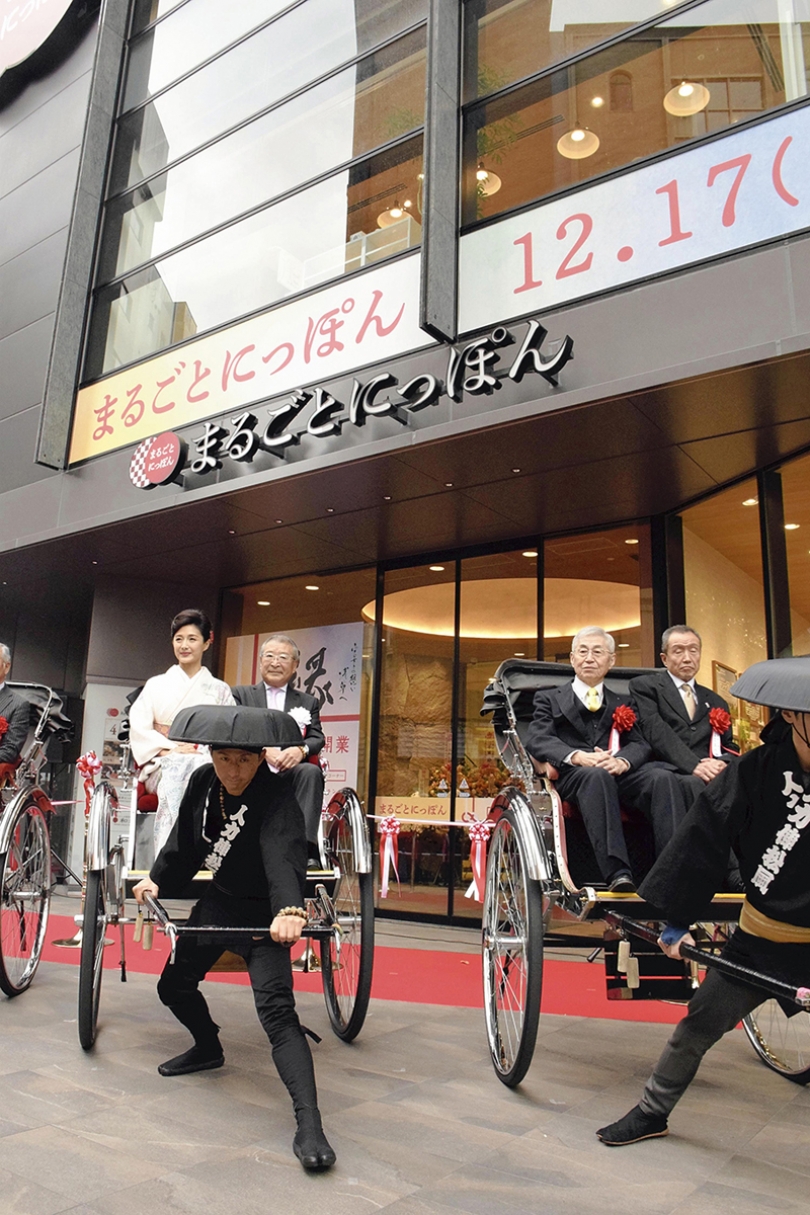Tales of two wheels

Japan’s rickshaws runners take on a modern role as tour guides
Spectators cheered when a rickshaw carrying pop culture icon Kyary Pamyu Pamyu appeared on the red carpet at Universal Studios Japan in Osaka.
The old-fashioned passenger cart with Kyary clad in a pink kimono and matching pink hakama pants added to the Japanese flavour of the opening ceremony of the thoroughly modern Universal Cool Japan 2016, an event featuring Japanese entertainment.
Rickshaws pulled by courteous, robust runners are becoming the latest way to experience Japanese hospitality.
Rickshaw drivers tirelessly pull their carriages through a myriad of alleys in response to their passengers’ requests. Many have studied foreign languages to enhance their services and some even aspire to become pop idols.
Dozens of rickshaw runners wait for customers in front of the Kaminarimon gate, a popular tourist spot in Asakusa, Tokyo, even on weekdays. Wearing rubber-soled tabi socks and hanten short coats, they are striking with their tanned skin and bulging biceps. They act as English-speaking tour guides and assist passengers in taking photos.
Rickshaws – called jinrikisha in Japanese, which means human-powered vehicle – originally served as taxis in the Meiji era (1868-1912) and eventually became obsolete. They were reintroduced in the 1970s in Takayama, Gifu Prefecture, to entertain tourists, and then became popular in Kyoto and Asakusa in the 1990s.
Jidaiya, one of the oldest rickshaw companies operating in Asakusa, attracts foreign tourists with a wide range of programmes besides their usual rickshaw rides, such as tea ceremonies, calligraphy classes, opportunities to wear kimono and other ways to experience Japanese culture.
Last November, four rickshaw drivers formed a band and released a CD via Teichiku Entertainment. Named Tokyo Rickshaw after their company, the quartet has been giving concerts at such venues as the Hanayashiki amusement park in Asakusa.
Hiroyuki Maekawa, president of Tokyo Rickshaw, said he was not surprised to hear about drivers aiming to become singers and actors.
“Rickshaw drivers have to have stamina. They also need to be knowledgeable in history and adept at entertaining their customers. There’s a lot in common between the professions,” Maekawa said.
Yuji Suzuki, a Tokyo Rickshaw employee, plans to set out on a globetrotting tour with his rickshaw in September, aiming to use the cart to introduce Japanese hospitality to people abroad. Suzuki is also considering reporting on his trip via the internet.
“I’ll definitely make my trip interesting,” Suzuki said. “I’ll take you around the world on my virtual ride on the rickshaw. And I’ll run at full speed.”
RELATED
